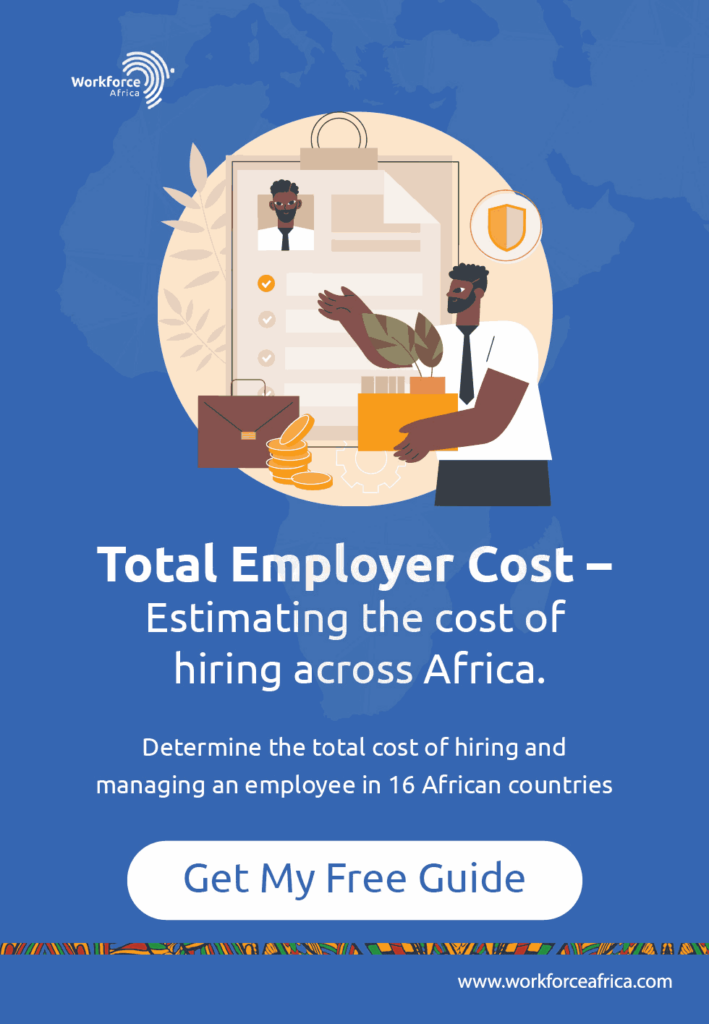

Global firms operating in Africa are facing a dynamic landscape of payroll trends.This article delves into the emerging trends reshaping the region's payroll management.
From technological advancements to regulatory changes, understanding these trends is crucial for businesses to stay competitive and compliant in the African market.
Globalisation has propelled many multinational corporations to expand their operations into Africa, drawn by its abundant resources, growing consumer markets, and untapped potential.
However, the landscape of global payroll trends is dynamic, and to maintain compliance and implement the best processes, you must be aware of the trends and forces behind the changes in the development and delivery of global payroll.
In this article, we will delve into the key payroll trends shaping the African business landscape and what global firms need to know to manage their payroll operations effectively.
The adoption of cloud-based global payroll software is revolutionising payroll management for global firms operating in Africa.
These platforms offer scalability, flexibility, and accessibility, allowing businesses to streamline payroll processes across diverse geographic locations.
With cloud-based solutions, multinational corporations can centralise payroll data, standardise processes, and ensure real-time compliance with local regulations.
By leveraging cloud technology, global firms can enhance operational efficiency, reduce administrative overheads, and gain better visibility into their payroll operations in Africa. This can create significant cost savings.
Suggested Post: Outsourcing Payroll in Africa for Compliance and Growth
Integration-focused payroll software is gaining traction among global firms in Africa, enabling seamless integration with other HR and finance systems.
Integrated payroll solutions facilitate data synchronisation, automate workflows, and eliminate manual errors associated with data entry.
By integrating payroll with HRIS (Human Resource Information Systems) and ERP (Enterprise Resource Planning) platforms, businesses can achieve greater efficient operations, improve data accuracy, and enhance decision-making capabilities.
Integration-focused software empowers global firms to create a cohesive ecosystem of HR and finance applications, driving synergy and collaboration across departments in the African market.
The modern workforce demands flexibility and instant accessibility, driving the growing trend of mobile payroll access in global payroll management.
As businesses increasingly adopt mobile-first solutions, this trend gains even more relevance.
Mobile payroll access lets employees easily view and manage payroll information through smartphones or tablets.
They can access pay-slips, tax documents, and leave balances, fostering a sense of autonomy and engagement.
Mobile access allows payroll managers to oversee and execute critical payroll functions remotely.
They can approve timesheets and process payroll adjustments from anywhere, enhancing efficiency and operational responsiveness.
This shift toward mobile access is a strategic response to evolving workplace dynamics, ensuring secure, on-demand access to payroll information.
In an era of increasing cyber threats and data breaches, data security has become a top priority for global firms managing payroll operations in Africa.
With the proliferation of sensitive employee data stored in payroll systems, businesses are doubling down on security measures to guide against cyber-attacks and unauthorised access.
Robust encryption protocols, multi-factor authentication, and regular security audits are essential safeguards global firms implement to protect payroll data in Africa.
By prioritising data security, businesses can build trust with employees, mitigate compliance risks, and safeguard their reputations in the face of evolving cyber threats.
Compliance with global payroll regulations is paramount for multinational corporations operating in Africa.
With regulatory fireworks evolving rapidly across different countries and jurisdictions, maintaining compliance poses significant challenges for international firms.
Businesses must navigate a complex maze of legal requirements, from tax laws to labour regulations, to avoid penalties and legal liabilities.
Investing in compliance-focused payroll software, staying abreast of regulatory changes, and partnering with local experts are essential strategies global firms employ to ensure adherence to global payroll regulations in Africa.
By proactively addressing compliance challenges, businesses can mitigate risks and foster trust and transparency in the African market.
On-demand pay services are reshaping traditional payroll practices in Africa, offering employees greater flexibility and financial freedom.
These services enable employees to access their earned wages on demand than waiting for the traditional pay cycle.
By providing instant access to funds, on-demand pay services help alleviate financial stress, improve employee satisfaction, and enhance retention rates.
Global firms embracing on-demand pay services can differentiate themselves as employers of choice in the African market, attracting top talent and driving employee engagement.
However, businesses must ensure compliance with local regulations and mitigate risks associated with using on-demand pay services in Africa.
Companies increasingly use employee equity and other forms of non-cash compensation to incentivize employees and enhance the employee experience.
Employee equity is a form of non-cash compensation that provides a share (or multiple) of the company's ownership. It gives recipients a stake in the business, often in the form of shares.
This form of compensation is particularly effective in attracting and retaining talent, especially in a company's early stages.
Offering employees a portion of the company's profits motivates them to contribute to the company's growth.
Typically, employee equity includes a waiting period during which employees do not have access to their assets, and it can sometimes compensate for a lower base salary.
Non-cash compensation encompasses all non-monetary remuneration, including benefits like retirement plans, holidays, personal days, and financial assistance for childcare and transport.
While these benefits have a monetary value, it is usually not explicitly stated.
Recommended Post: How to Conduct a Global Payroll Audit in 8 Steps
As global firms expand their footprint in Africa, staying updated in managing their payroll is vital for success.
By embracing digital transformation, ensuring regulatory compliance, adapting to remote work dynamics, prioritising talent management, and leveraging data analytics.
Businesses can unlock the full potential of their payroll operations in the African market.
By proactively addressing these emerging trends, global firms can mitigate risks, seize opportunities, and drive sustainable growth in the dynamic landscape of African business.
To learn more about how Workforce Africa can help you with your payroll system, please click here to schedule a consultation.